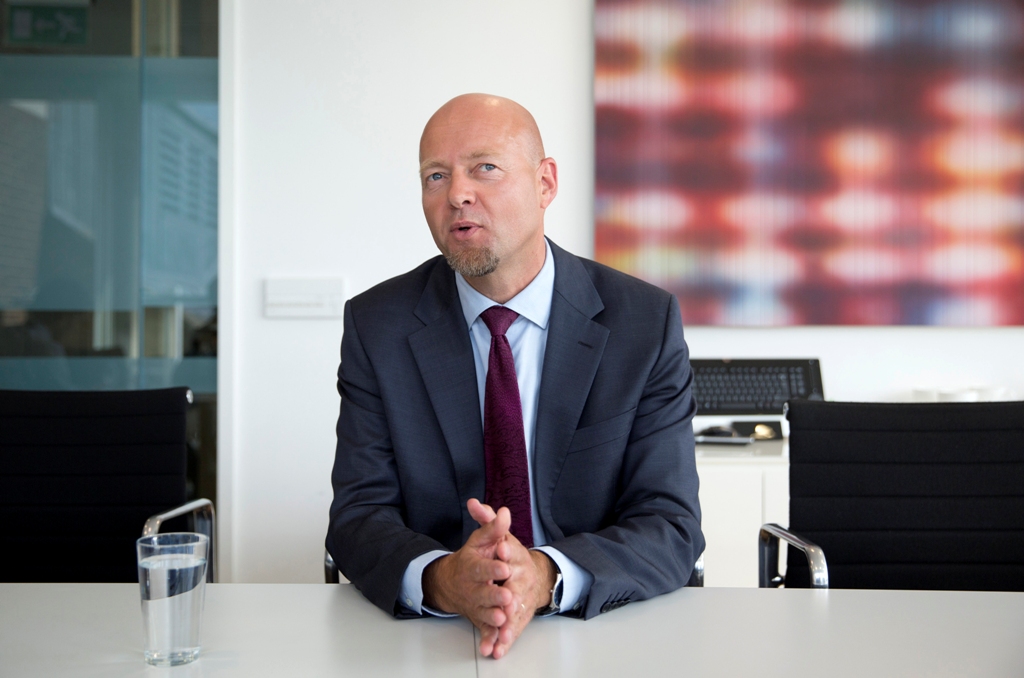
GPFG boss Yngve Slyngstad outlines the fund's new tough policy on directors' remuneration.
Reuters
Big listed corporations with executives taking home fat paychecks have been forewarned.
The fund now believes that remuneration has become a global issue. It is on the lookout for a "sufficiently egregious example of bad pay" to launch what it describes as a position paper. This will enable the fund to lay its principles for what it expects from its more than 9,000 shareholdings.
"We are looking at how to approach this issue in the public space. We will choose the right instance for the right case of voting," Slyngstad told the FT.
The newspaper noted that the fund had voted in favour of BP chief executive Bob Dudley's pay rise even though an overwhelming majority of other investors voted against his 20% pay hike. The company made its worst ever financial loss for the period that Dudley was being rewarded with a massive rise in salary.
BP's top 15 shareholders had urged to company to take note of the growing shareholder dissent. It had also asked BP to change its "overly complex" remuneration policy before the 2017 AGM.
The
world's largest sovereign fund has finally decided to change its policy
on high executive pays and it has now decided to go after these
companies in a very public manner.
After earlier
refusing to be drawn into how much chief executives are being paid at
the companies it holds stakes in, the Norway's oil fund has changed
tact.
It has decided
that its previous position is no longer tenable and that it is now
seeking to rectify the situation by looking for a company to "target
publicly on pay in the coming months."
Norway's $870bn oil fund is of significant importance. In addition to being the
world's
biggest sovereign fund, it has an average of 1.3% interest in almost
every major listed company in the world, the Financial Times reports.
The Norway's
Government Pension Fund Global, is funded by the country's oil revenues
and generated an annual return of 3.8% between 1998 and 2014, after
taking into account management costs and inflation, according to CNBC.
The fund invests in 9,000 companies and has investments in 75 countries.
The fund's Chief Executive Yngve Slyngstad told the FT: "We
have so far looked at this in a way that focused on pay structures
rather than pay levels. We think, due to the way the issue of executive
remuneration has developed. that we will have to look at what an
appropriate level of executive remuneration is as well."
The sovereign fund had previously steered clear of taking a view on
executive pay over concerns that its stance may be seen as being
influenced by Scandinavian pay conditions. Executives in the region are
paid much less in the UK or the US, the FT noted. In addition, the gap
between the highest and the lowest paid in the companies is far
narrower.The fund now believes that remuneration has become a global issue. It is on the lookout for a "sufficiently egregious example of bad pay" to launch what it describes as a position paper. This will enable the fund to lay its principles for what it expects from its more than 9,000 shareholdings.
"We are looking at how to approach this issue in the public space. We will choose the right instance for the right case of voting," Slyngstad told the FT.
The newspaper noted that the fund had voted in favour of BP chief executive Bob Dudley's pay rise even though an overwhelming majority of other investors voted against his 20% pay hike. The company made its worst ever financial loss for the period that Dudley was being rewarded with a massive rise in salary.
BP's top 15 shareholders had urged to company to take note of the growing shareholder dissent. It had also asked BP to change its "overly complex" remuneration policy before the 2017 AGM.

Post a Comment